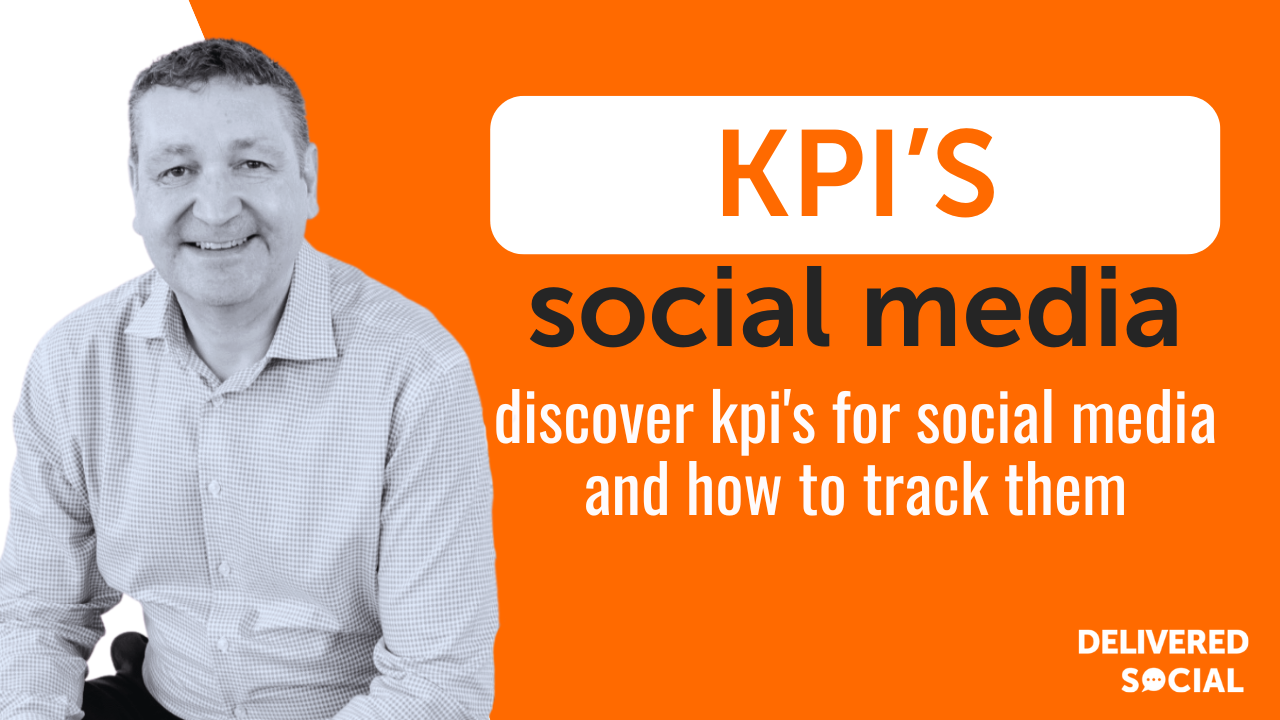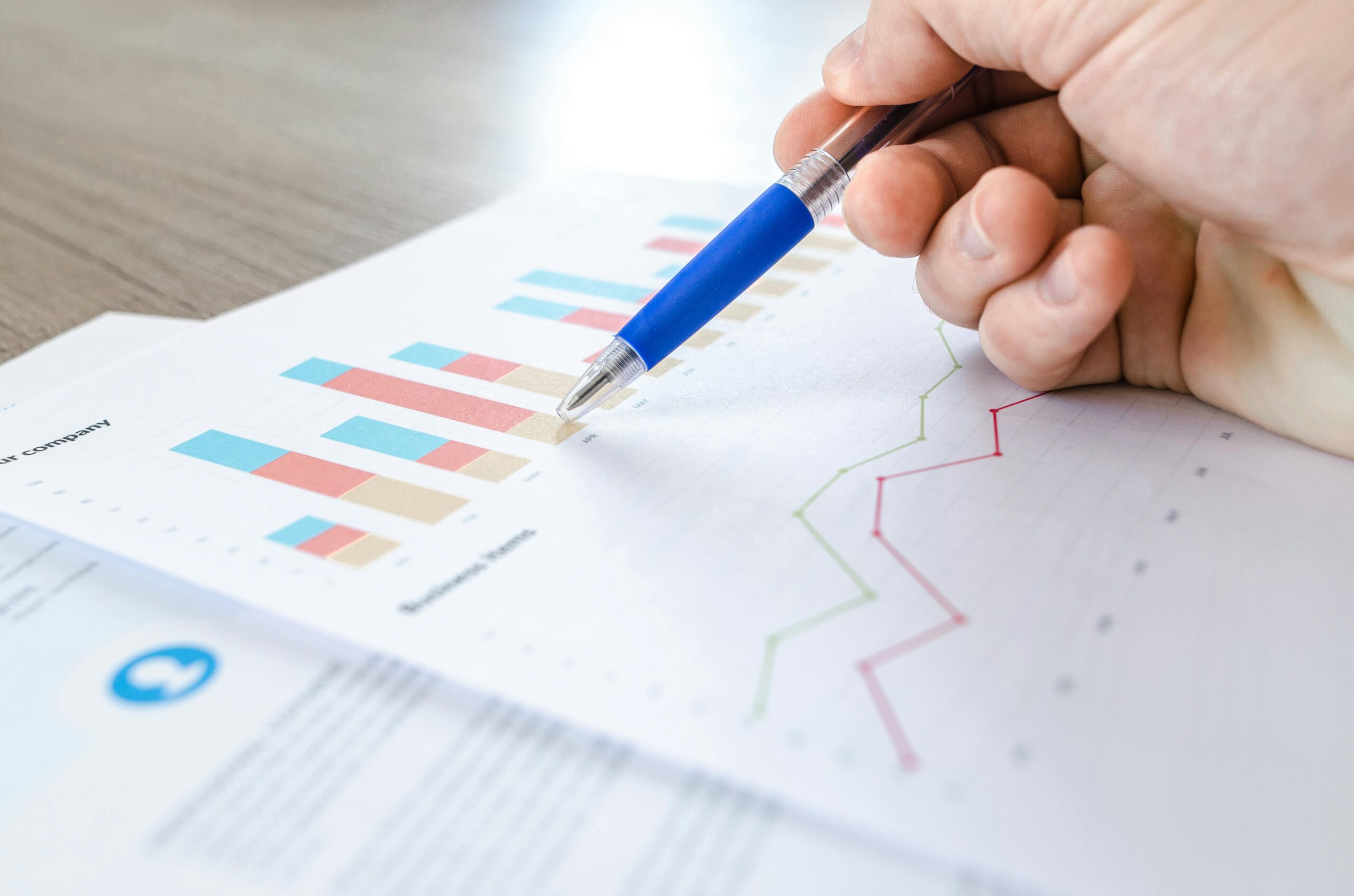
In the competitive world of digital marketing, measuring the success of your social media efforts is essential for growth. Key performance indicators for social media (KPIs) allow businesses to track their progress and make informed decisions to improve performance. Without clearly defined KPIs, it’s difficult to gauge whether your social media strategy is effective, let alone know how to optimise it for better results.
Social media platforms provide a wealth of data, but it’s not enough to simply collect metrics. You need to focus on the right social media metrics that align with your business goals and help you measure engagement, reach, and conversions effectively. This is where KPIs come into play. By setting measurable and actionable KPIs, you can monitor your progress, make data-driven decisions, and achieve tangible results.
Understanding how to measure social media engagement is crucial for businesses that want to leverage social platforms to their fullest potential. Whether you’re looking to increase brand awareness, generate leads, or boost sales, tracking the right KPIs ensures that you’re heading in the right direction. For example, if your goal is to increase engagement, you might focus on metrics like likes, comments, and shares. If your aim is to drive traffic to your website, you’ll want to track click-through rates and conversion rates.
In this article, we will explore the most important key performance indicators for social media, how to set them, and how to measure their success. By the end of this guide, you’ll have a clear understanding of which KPIs matter most to your business and how to track them effectively to drive meaningful results.
Why KPIs Matter for Social Media
KPI’s are essential for understanding how well your content is performing and whether your efforts align with your business objectives. Without the right KPIs, it’s challenging to track progress, optimise strategies, and ultimately achieve your goals. KPIs offer insights that help businesses focus their social media efforts on what matters most.
In essence, KPIs allow businesses to measure social media performance in a meaningful way. Social media platforms provide a wealth of data, but not all of it is relevant to your goals. KPIs help to sift through this data, highlighting the metrics that are most important for your business. By focusing on specific metrics, you can track audience engagement, growth, and the impact of your campaigns.
For example, if your goal is to increase brand awareness, measuring metrics such as reach and impressions can show you how many people have seen your content. On the other hand, if you’re focused on conversions or sales, click-through rates (CTR), conversion rates, and cost per lead (CPL) will be more relevant. By setting the right KPIs for your business, you can tailor your content strategy to achieve the desired outcome, whether it’s building relationships, generating leads, or boosting sales.
Moreover, KPIs provide accountability and transparency. By tracking and analysing social media metrics, businesses can see which strategies are working and which need improvement. Regularly measuring KPIs helps to identify trends, spot potential issues early, and make data-driven decisions to optimise your social media marketing efforts.
At Delivered Social, we help businesses define and track the most relevant KPIs for social media, ensuring that every social media campaign delivers measurable results.

The Most Important Key Performance Indicators for Social Media
This is one of the key focus areas for the content team at Delivered Social. When it comes to social media measurement, choosing the right key performance indicators (KPIs) is crucial. Not all metrics are created equal, and different KPIs serve different purposes depending on your business goals. Below are some of the most important social media KPIs that every business should track to optimise their strategy and drive better results.
1. Engagement Metrics (Likes, Comments, Shares)
One of the most common and important KPIs for social media is engagement. Metrics like likes, comments, and shares indicate how well your content is resonating with your audience. High engagement signals that your content is relevant, interesting, and valued by your followers. These metrics are often directly linked to the effectiveness of your content in sparking conversations and interactions.
For businesses looking to build a strong online community, engagement metrics for social media provide valuable insight into audience preferences and content effectiveness. The more engagement your posts receive, the higher the chances of expanding your reach and attracting new followers.
2. Reach and Impressions
While engagement is crucial, reach and impressions are also vital metrics for measuring the impact of your social media presence. Reach refers to the number of unique people who have seen your content, while impressions refer to how often your content was displayed in users’ feeds. These KPIs help businesses understand how far their content is spreading and how many people are exposed to their brand.
A growing reach is a good indicator of increased brand awareness, which is essential for businesses that want to expand their customer base. Tracking reach and impressions will show you how successful your content is at reaching new audiences.
3. Click-Through Rate (CTR)
The click-through rate (CTR) is another crucial KPI that measures the effectiveness of your content in driving traffic. It is calculated by dividing the number of clicks on a link by the number of impressions. A high CTR means that your audience is not only engaging with your content but is also interested enough to click on your links and visit your website.
For businesses aiming to drive traffic, the CTR is an important metric to track. It shows how well your posts are driving potential leads to your website, blog, or product page, helping to increase conversions and sales.
4. Conversion Rate
Ultimately, the goal of social media lead generation is to convert your audience into customers. The conversion rate tracks the percentage of people who take a desired action after engaging with your content, whether that’s filling out a form, signing up for a newsletter, or making a purchase. Monitoring this KPI helps businesses understand how effectively their social media strategy is influencing customer behaviour.
A strong conversion rate indicates that your social media content is successfully guiding leads down the sales funnel, from awareness to action. Tracking conversions ensures that your social media efforts align with your business goals and generate tangible results.
5. Follower Growth Rate
The follower growth rate shows how quickly your social media following is expanding over time. This KPI is essential for businesses looking to build a larger audience and increase their social reach. By tracking how your followers increase, you can assess whether your content is attracting the right audience and whether your brand is gaining popularity.
A high follower growth rate indicates that your content is appealing to your target audience and that your social media presence is growing. This can lead to higher engagement, increased brand awareness, and more opportunities for lead generation.

How to Set Effective KPIs for Your Social Media Campaigns
Setting clear and measurable key performance indicators for social media is crucial for tracking the success of your campaigns. However, it’s not just about choosing a random metric, each KPI should be aligned with your business goals, so you can measure your progress accurately. Below, we’ll go over how to set effective KPIs for social media lead generation and other objectives.
Align KPIs with Your Business Goals
The first step in setting KPIs is ensuring that they’re aligned with your overall business objectives. Whether you want to increase brand awareness, drive traffic, or generate leads, your KPIs should reflect the specific outcomes you want to achieve. If your goal is to build brand awareness, focus on metrics like reach and impressions. If your goal is lead generation, click-through rates (CTR) and conversion rates will be more relevant.
At Delivered Social, we work with clients to define their business goals and translate them into clear, actionable KPIs. By understanding what success looks like for each client, we help them focus on the right metrics.
Use SMART Criteria for Setting KPIs
When defining KPIs for social media, it’s essential to follow the SMART criteria: Specific, Measurable, Achievable, Relevant, and Time-bound. This framework ensures that your goals are clearly defined and attainable. For instance, rather than setting a vague goal like “increase engagement,” set a more specific goal like “increase Facebook post likes by 20% in the next 3 months.” This goal is measurable, achievable, and tied to a clear timeframe.
Monitor and Adjust KPIs as Needed
Once you’ve set your KPIs, it’s important to regularly monitor them and make adjustments as needed. Social media is dynamic, and what works one month might not work the next. By continually tracking your KPIs, you can see which strategies are driving results and which need improvement. This allows for ongoing optimisation of your campaigns, helping you stay on track to achieve your goals.
How to Measure and Track Social Media KPIs
Once you’ve set your key performance indicators for social media, it’s crucial to know how to track and measure them to assess your campaign’s success. Tracking KPIs helps businesses identify trends, optimise strategies, and make data-driven decisions. Here’s how you can measure and track social media metrics effectively.
Use Built-in Analytics Tools
Most social media platforms, such as Facebook, Instagram, LinkedIn, and Twitter, offer built-in analytics tools that allow businesses to track key metrics. These tools provide data on engagement, reach, impressions, click-through rates (CTR), and more. For instance, Facebook Insights and Instagram Insights offer detailed reports on how posts are performing, while LinkedIn Analytics helps track the effectiveness of business page posts and ads.
At Delivered Social, we guide businesses through setting up and using these platform-specific tools to gather valuable insights into their social media performance. Understanding the metrics provided by these tools allows businesses to make better decisions and refine their strategies over time.
Use Third-Party Tools for More In-Depth Analysis
While built-in tools are helpful, third-party platforms like Google Analytics, Sprout Social, and Hootsuite provide even deeper insights into your social media performance. These tools can track a variety of social media metrics across multiple platforms and centralise the data in one location. They also allow you to compare performance over time, monitor audience demographics, and assess the effectiveness of paid ads.
These tools are particularly useful for businesses that need more comprehensive data to analyse and optimise their social media lead generation strategies. By combining data from various sources, businesses can get a clearer picture of how their content is performing and which platforms are delivering the best results.
Set Regular Reporting Intervals
To track your KPIs effectively, set regular reporting intervals, whether that’s weekly, bi-weekly, or monthly. Consistently monitoring your progress allows you to adjust your strategy in real-time. For example, if you notice that engagement on a specific platform is declining, you can adjust your content strategy or increase paid promotions to boost engagement.
At Delivered Social, we help businesses set up regular reporting intervals, providing actionable insights that help optimise social media campaigns and ensure that businesses are on track to meet their goals.
FAQ: Key Performance Indicators for Social Media
How often should I check my social media KPIs?
To stay on top of your social media performance, it’s important to review your KPIs regularly. Depending on your campaign, you should check weekly or monthly. This will help you track your progress, spot trends, and make adjustments quickly if needed. For paid campaigns, monitoring KPIs daily can also be beneficial to optimise ad spend and performance.
What’s the most important KPI to track on social media?
The most important social media KPI depends on your specific goals. If you’re focusing on brand awareness, reach and impressions are key. If you’re focused on engagement or conversions, click-through rates and conversion rates are essential. Always align your KPIs with your business objectives.
Can I track KPIs across different platforms?
Yes, you can track social media KPIs across multiple platforms. Tools like Google Analytics, Sprout Social, and Hootsuite centralise data from various platforms, making it easier to analyse overall performance and identify which platform is driving the most results.
How can I improve my KPIs if the results are low?
If your KPIs are not meeting expectations, review your content and engagement strategies. Try testing different types of content, experimenting with posting times, or adjusting your targeting in ads. Regularly testing and refining your approach is key to improving social media performance.
Interested In Working Together?
Introducing Delivered Social. We’re The Most-Rated Digital Agency In Surrey & Hampshire – We’ve Got To Be Doing Something Right.
Delivered Social is a digital marketing agency with one mission—to help businesses grow. We’re famous in Guildford and Portsmouth for our social clinics. We believe in free advice. We build lasting relationships because our team prides itself on being helpful, which our clients appreciate.
If you are looking for a new website or an agency to manage your social media presence, we can help.
If you need something slightly different, here's a super handy list of all our services, or you can always email us.


















